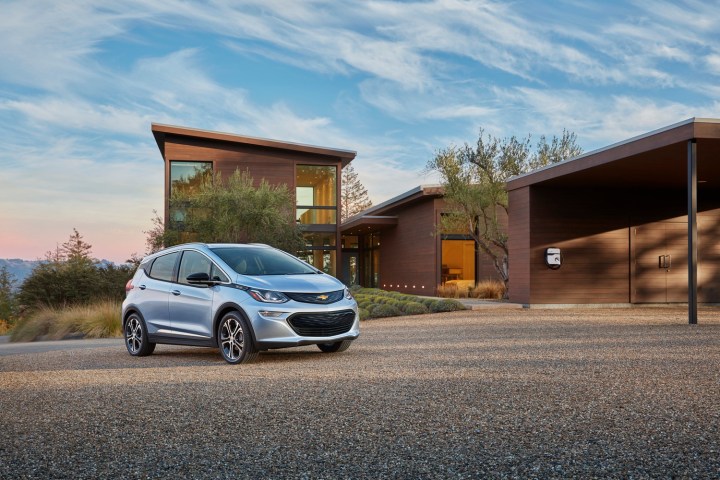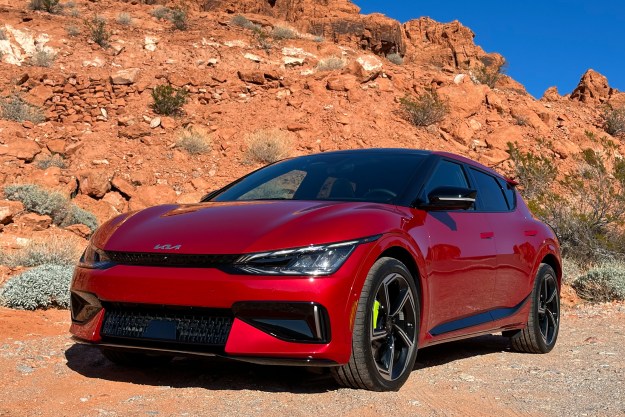
GM CEO Mary Barra mentioned a $30,000 post-incentive price in her speech introducing the 2017 Chevy Bolt EV production model at CES, and now the car’s promotional site backs that up. It lists a base price of $37,500, which drops to $30,000 after the $7,500 federal tax credit for electric cars is applied. The price could drop even lower depending on where a buyer lives, as several states have incentives of their own.
Chevy also now says the Bolt EV will take nine hours to recharge using a 240-volt home charging station. The carmaker is also expected to offer a DC fast-charging option like some of its competitors, which can recharge the battery pack to 80 percent capacity in under an hour.
The production Bolt’s shape stays close to the original concept, with some significant changes to things like the front fascia and various details. The interior is packed with tech features, including a 10.2-inch “flip-board style” infotainment touchscreen, a rear-facing camera display in place of a rearview mirror, low-energy Bluetooth connection, and a Wi-Fi hotspot like the ones installed in numerous other GM vehicles.
Almost as remarkable as the Bolt’s range and relatively low price is the speed with which GM transformed it from a concept car into a production vehicle. The original concept was unveiled at the 2015 Detroit Auto Show about a year ago, and GM says production will begin at its Orion Assembly plant in Michigan before the end of the this year.
The quick turnaround is due in part to an unprecedented collaboration with LG Chem. The Korean company already supplies battery cells for several GM models, but for the Bolt EV it will be responsible for everything from the drive motor to the infotainment system. The car itself is thought to ride on the platform of the next-generation Chevy Sonic.
Editors' Recommendations
- The Maserati GranCabrio Folgore is one of the best-looking EVs yet
- Tesla faces new rival as a tech giant launches its first EV
- 2024 Chevrolet Equinox EV: price, release date, range, and more
- Bold style alone can’t muscle Chevy’s new Blazer EV to the head of its class
- Fiat’s 500e returns as a stylish and affordable small EV


